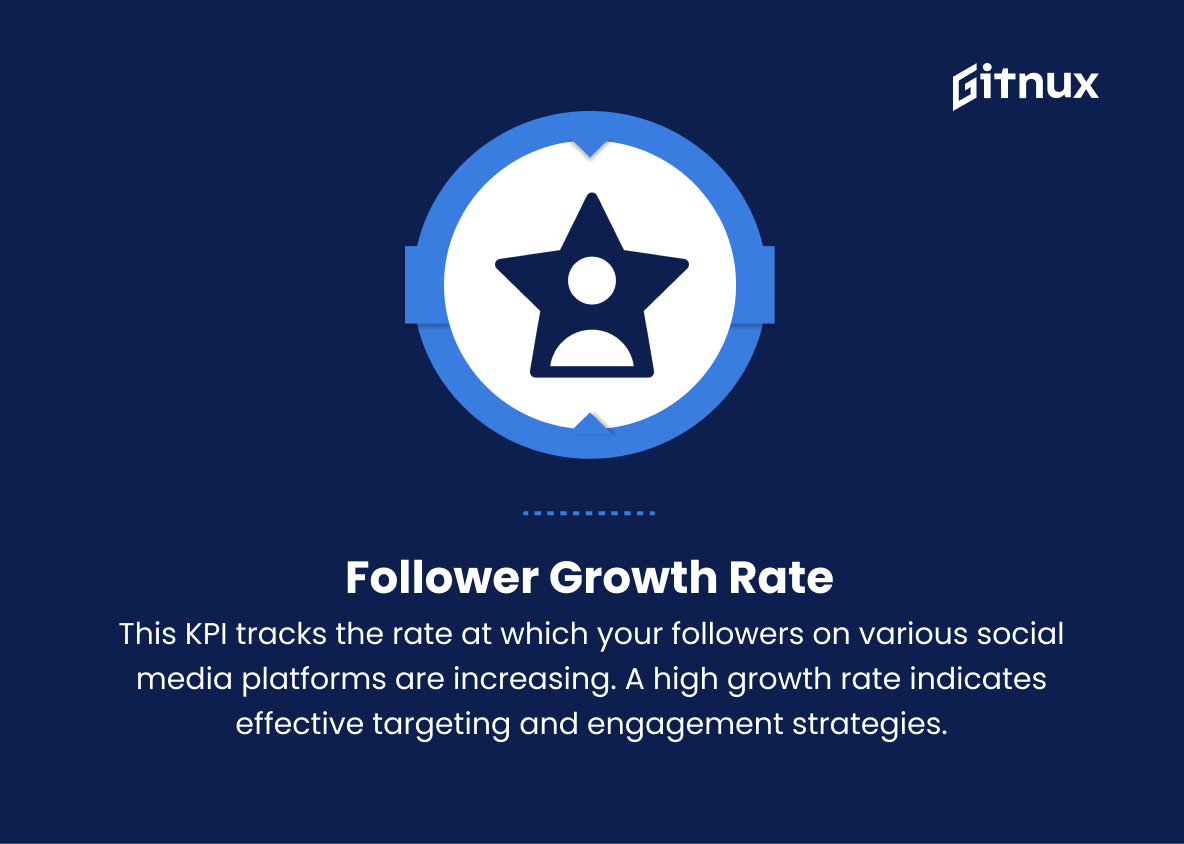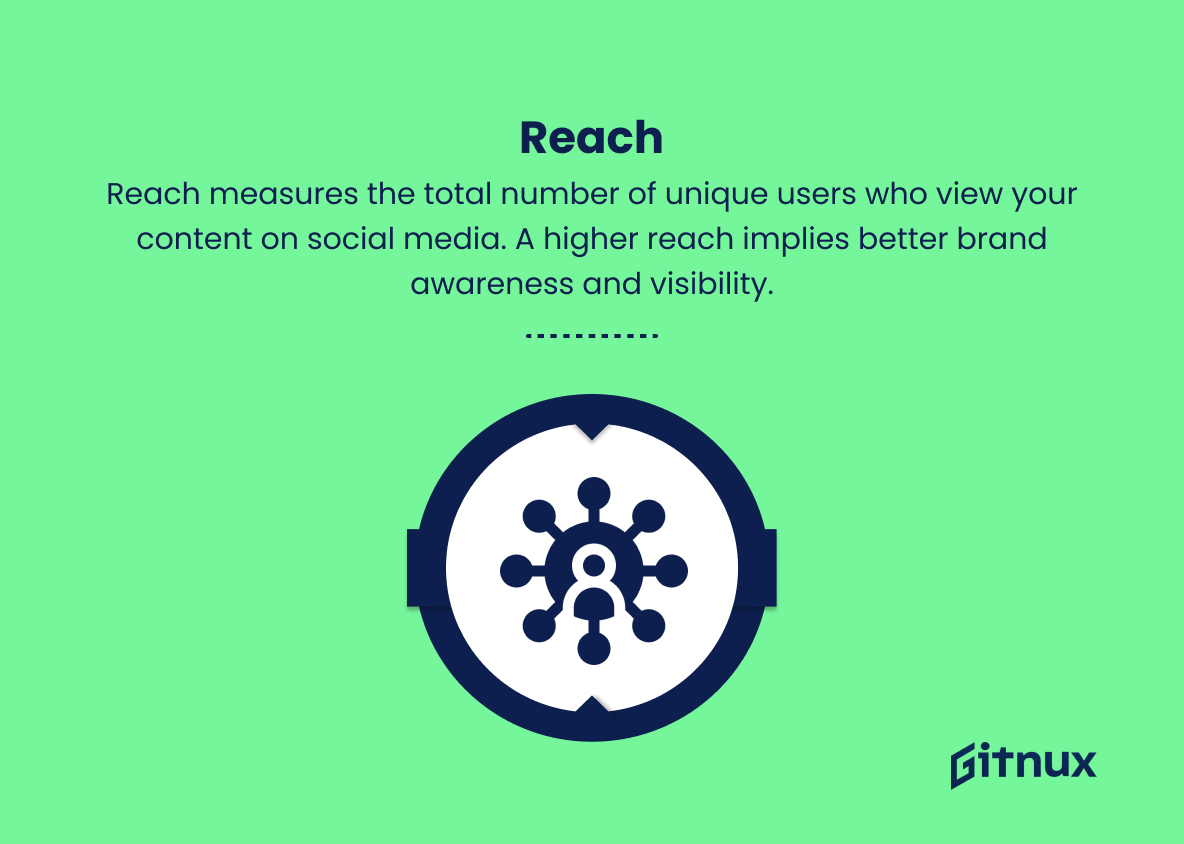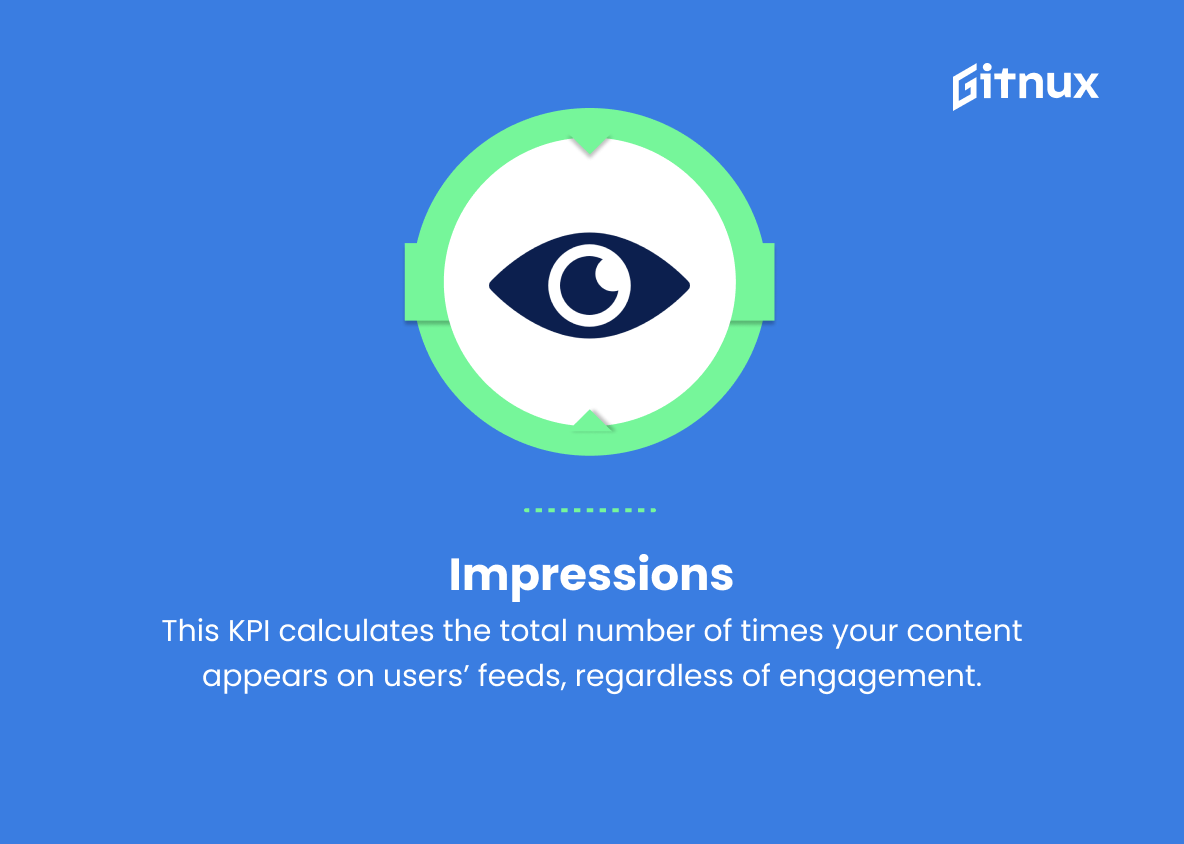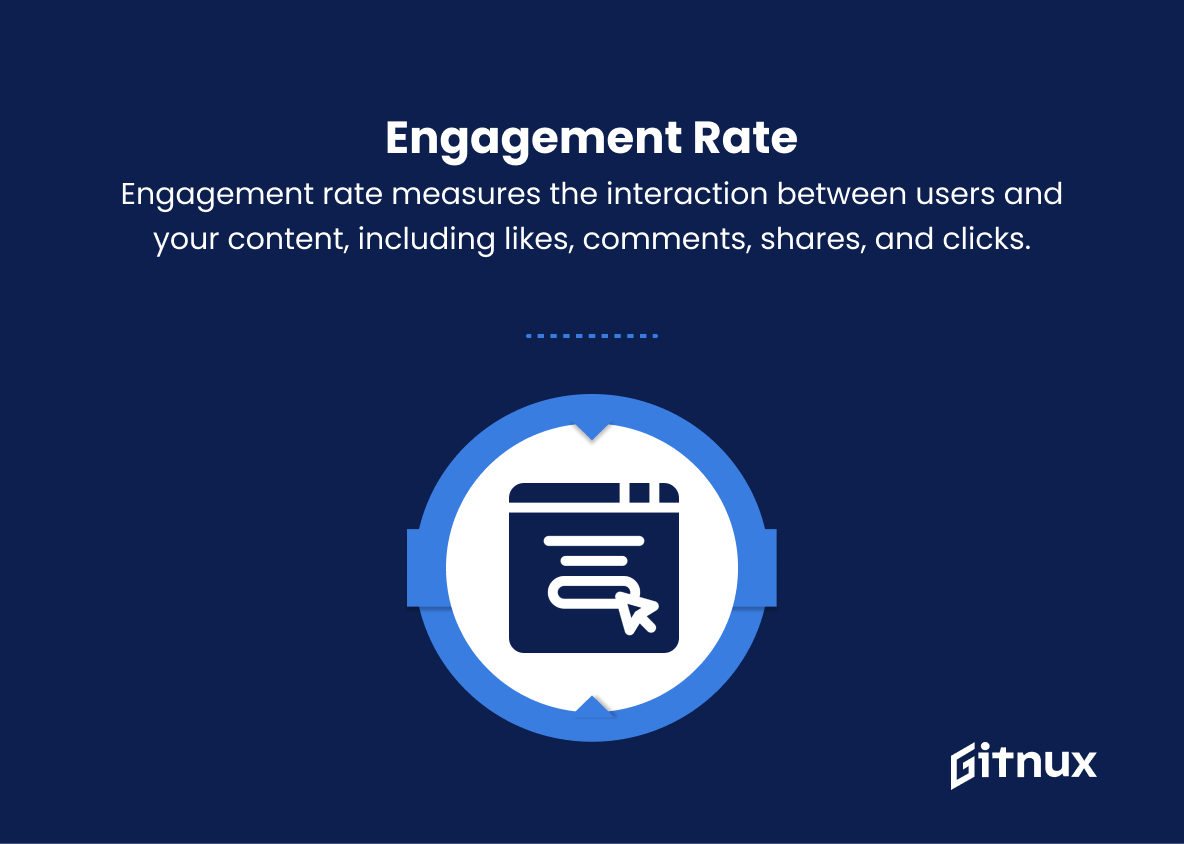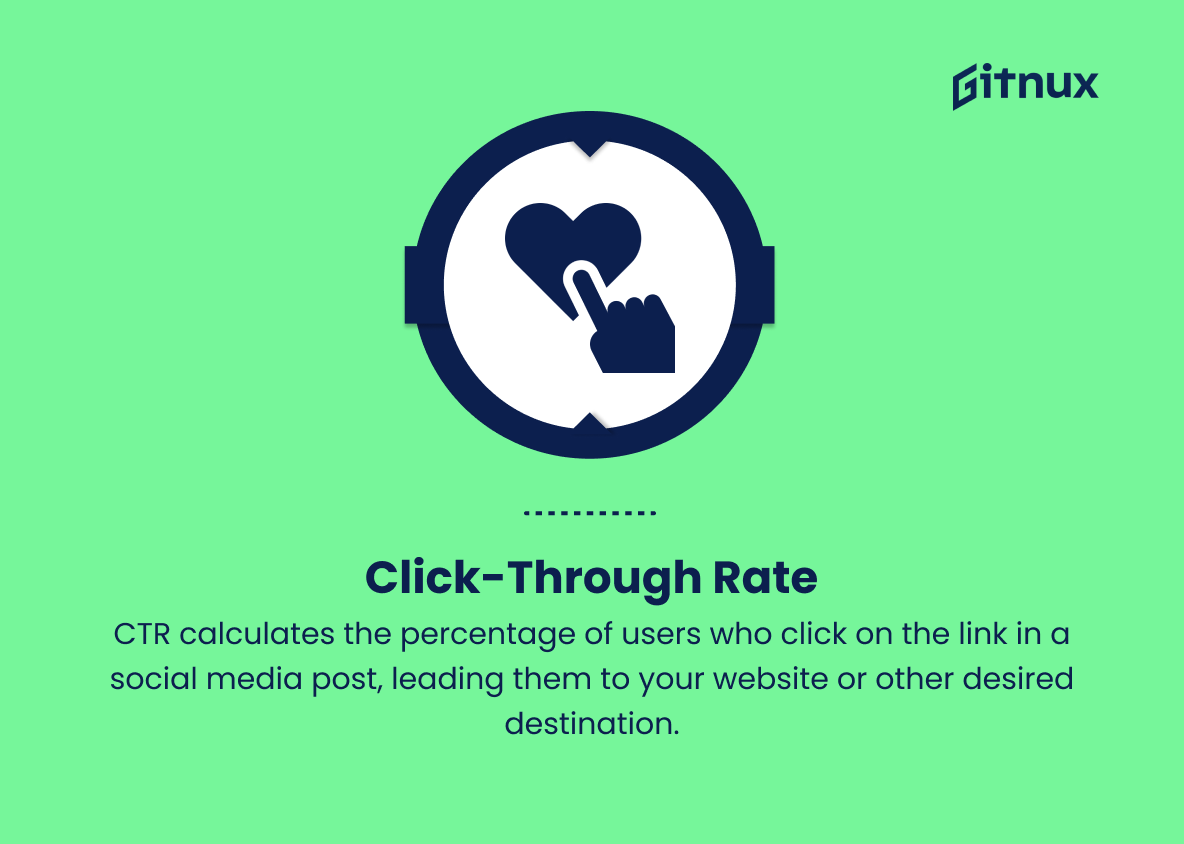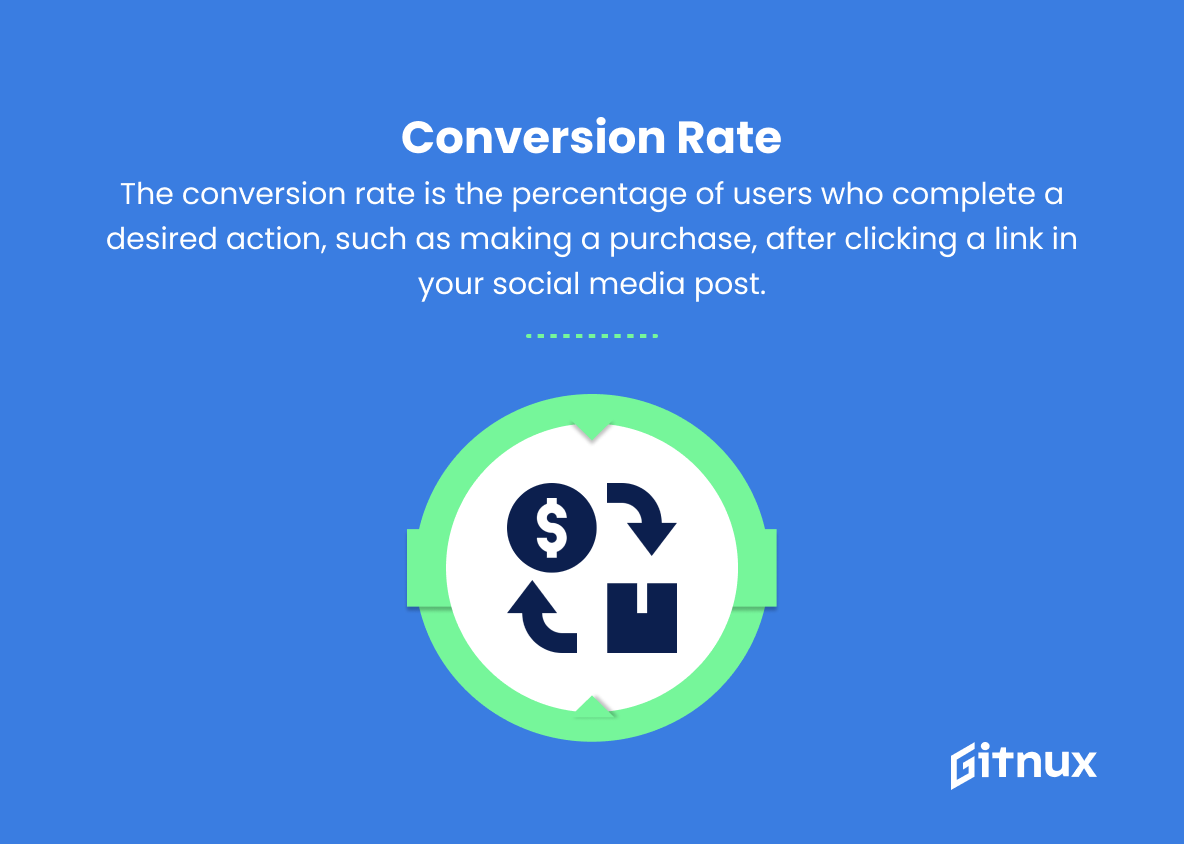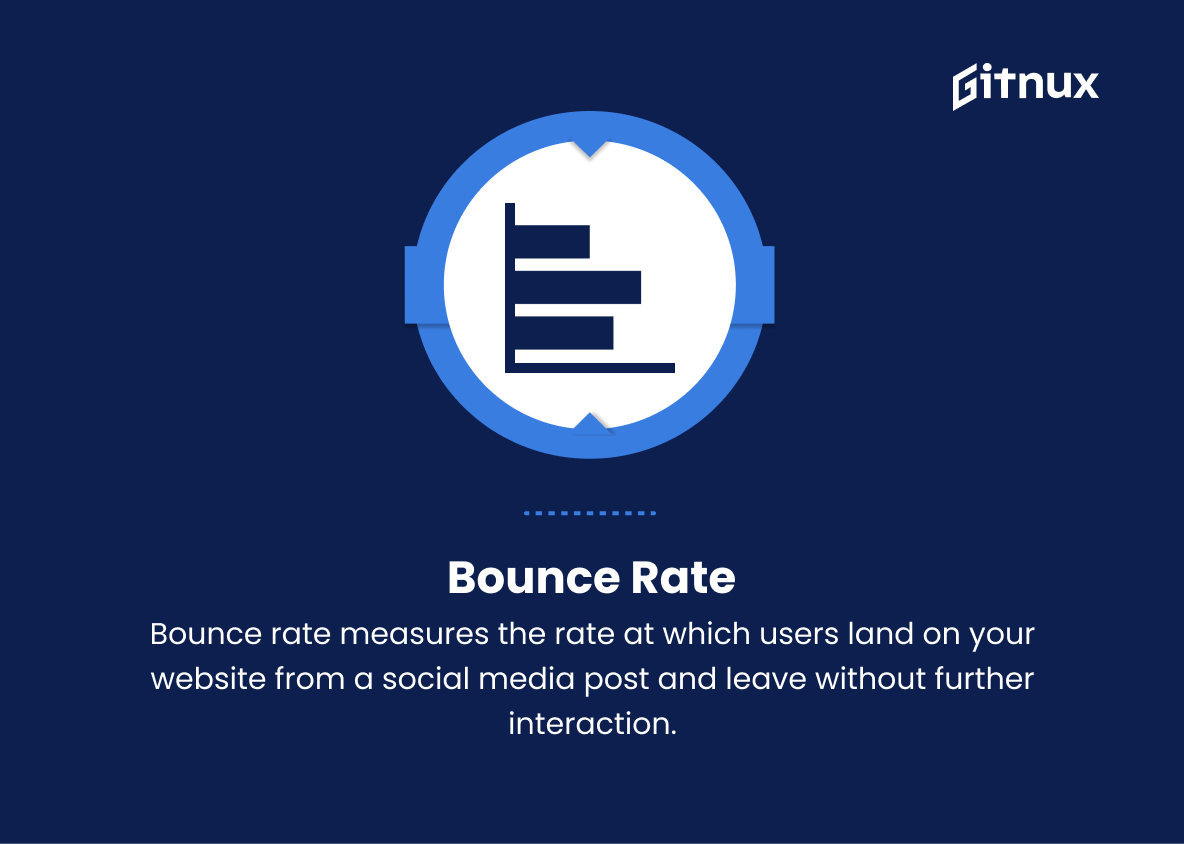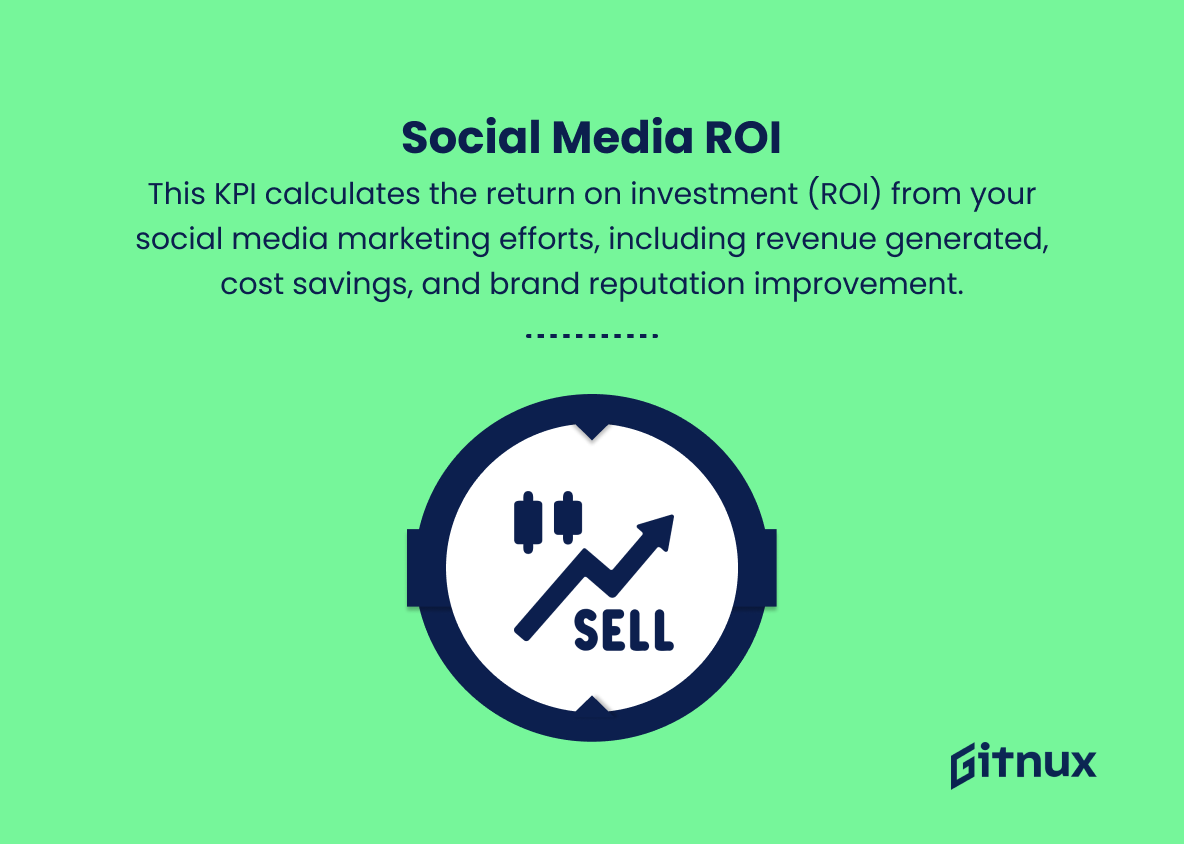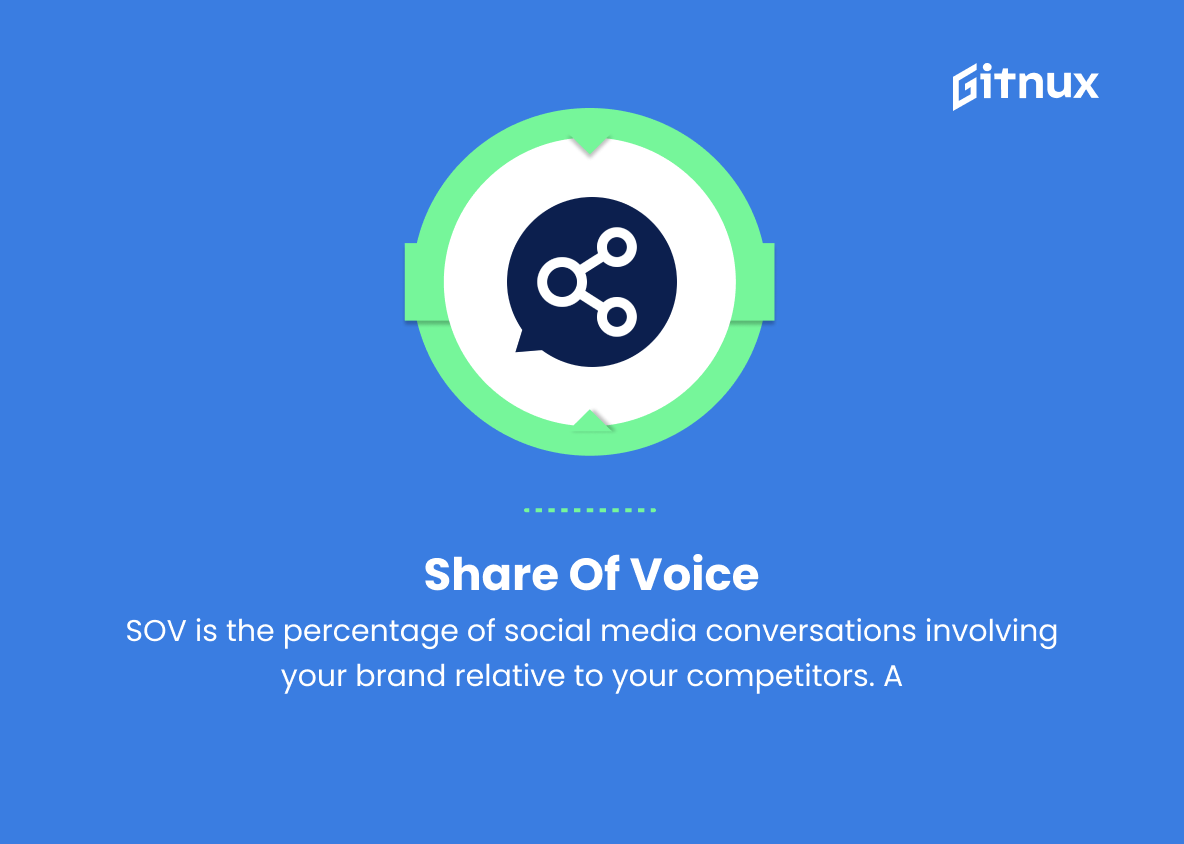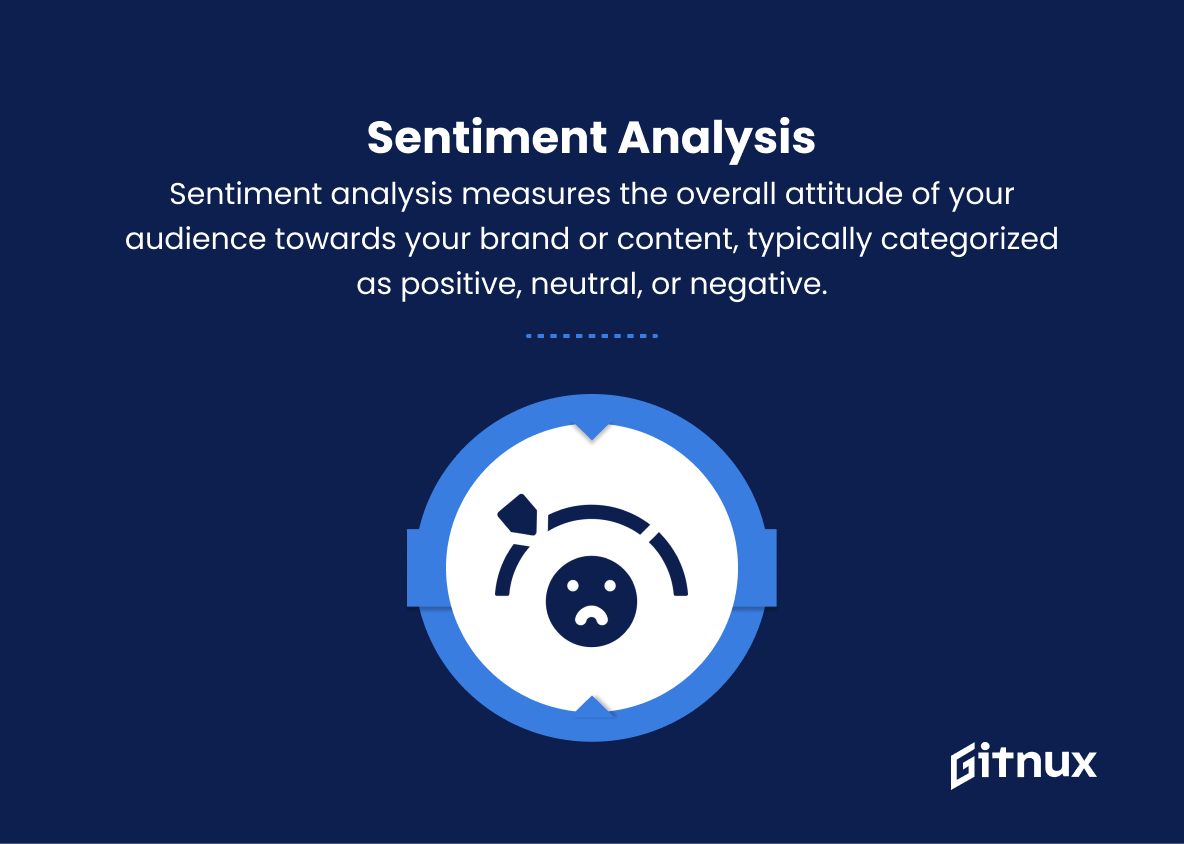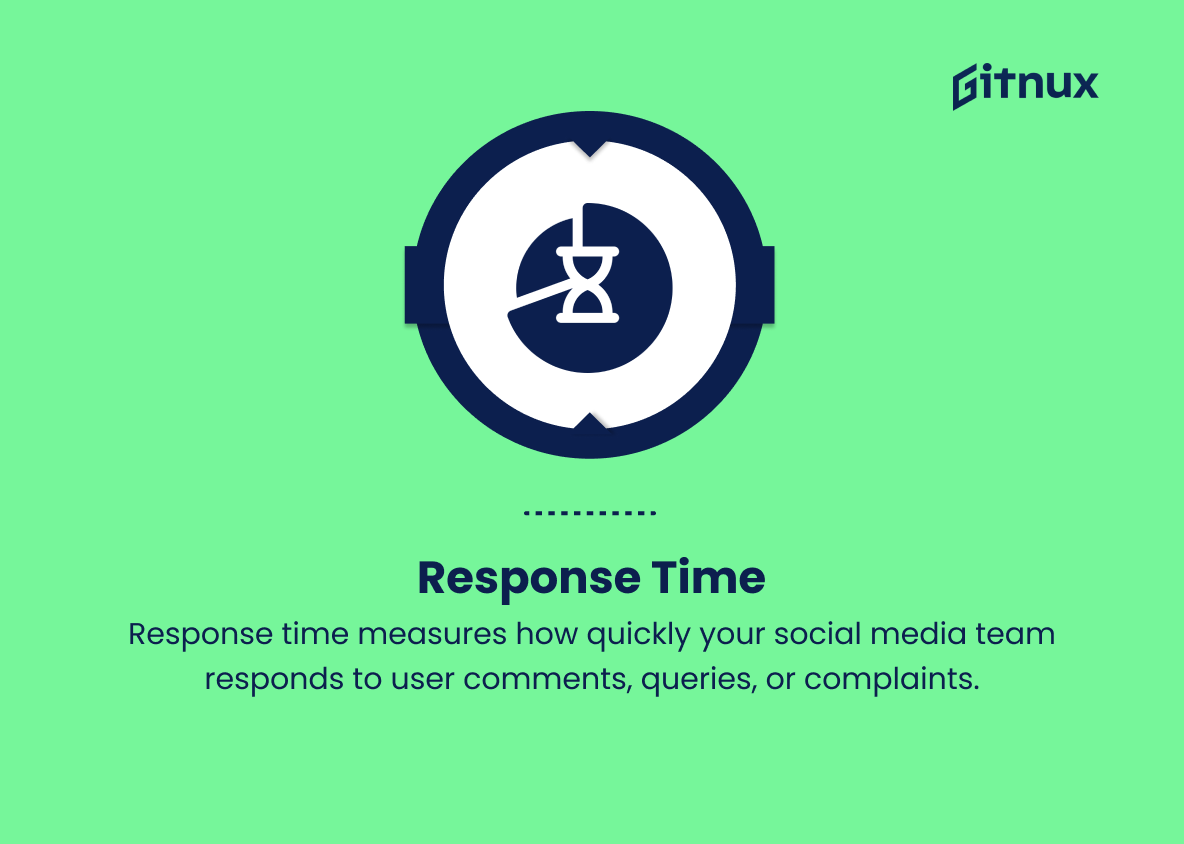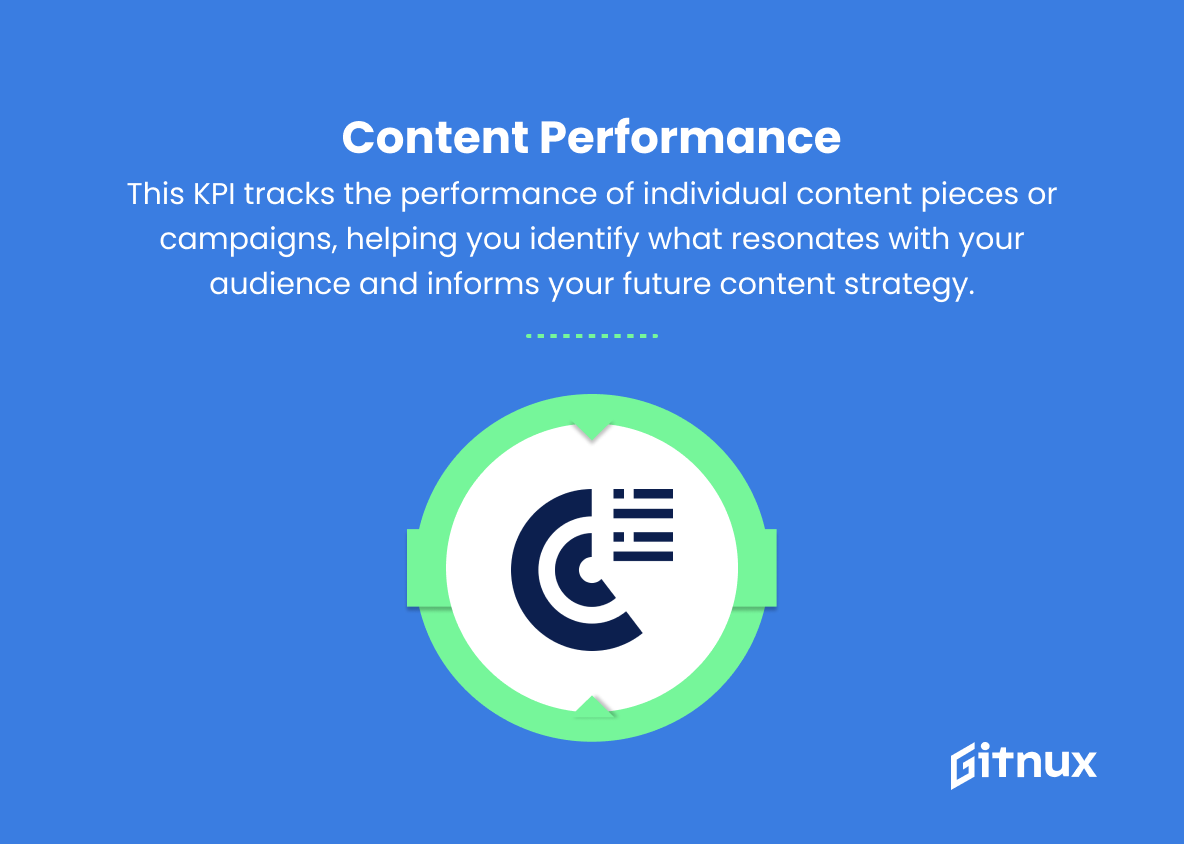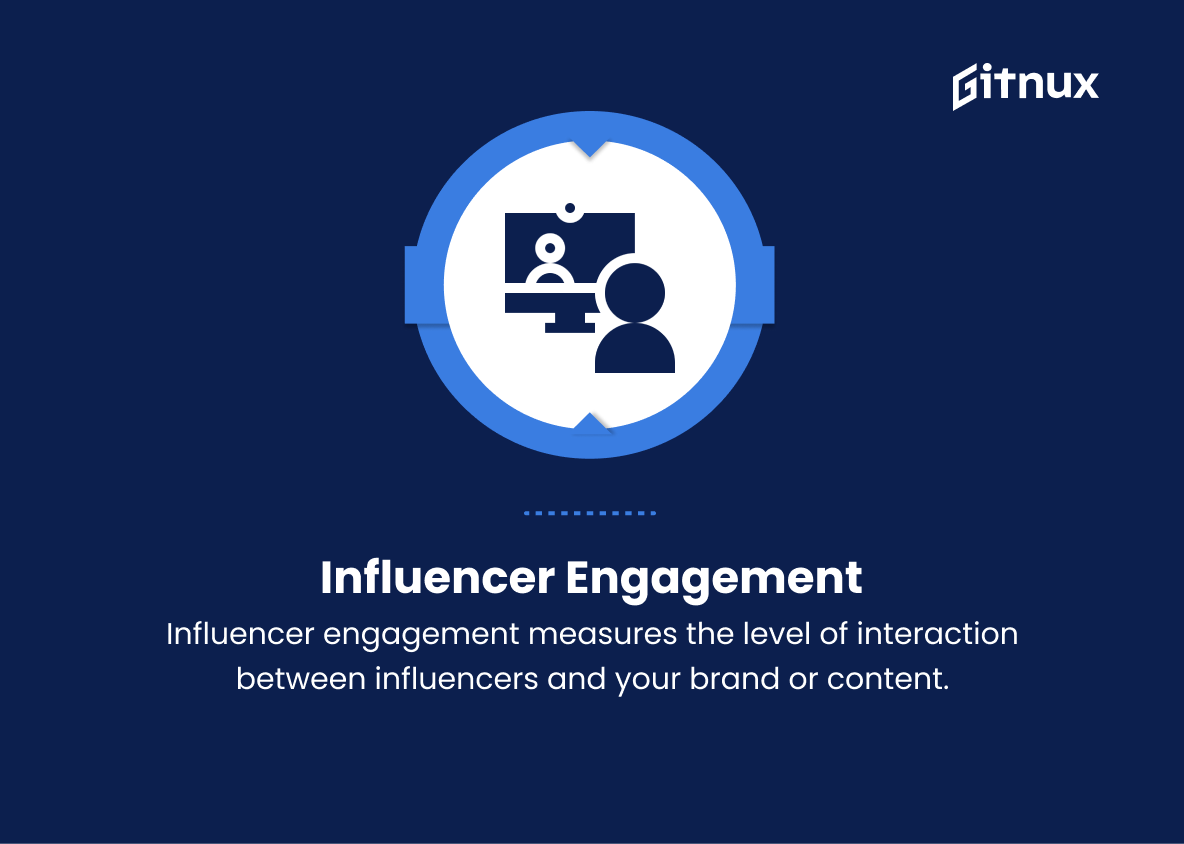In today’s digital world, the role of a social media manager is not only dynamic but also paramount in ensuring the success of any brand or company’s social presence. As the digital landscape evolves, it calls for a sophisticated approach to measuring the effectiveness of social media campaigns and strategies. This is where Key Performance Indicators (KPIs) come into play. Addressing the need for quantifiable and actionable data, KPIs allow social media managers to assess their efforts and make informed decisions based on the results.
In this insightful blog post, we will explore the importance of Social Media Manager KPIs, and delve into the essential metrics that are vital for tracking and enhancing the performance of your social platforms. Stay tuned as we unwrap the world of data-driven social media management, a crucial cornerstone in optimizing your brand’s online presence.
Social Media Manager KPIs You Should Know
1. Follower growth rate
This KPI tracks the rate at which your followers on various social media platforms are increasing. A high growth rate indicates effective targeting and engagement strategies.
2. Reach
Reach measures the total number of unique users who view your content on social media. A higher reach implies better brand awareness and visibility.
3. Impressions
This KPI calculates the total number of times your content appears on users’ feeds, regardless of engagement. High impressions indicate that your content is being shown to more people.
In today’s digital world, the role of a social media manager is not only dynamic but also paramount in ensuring the success of any brand or company’s social presence.4. Engagement rate
Engagement rate measures the interaction between users and your content, including likes, comments, shares, and clicks. Higher engagement rates demonstrate that your audience finds your content valuable.
5. Click-through rate (CTR)
CTR calculates the percentage of users who click on the link in a social media post, leading them to your website or other desired destination. A high CTR signifies a compelling call-to-action and content relevance.
6. Conversion rate
The conversion rate is the percentage of users who complete a desired action, such as making a purchase, after clicking a link in your social media post. This KPI helps gauge the effectiveness of social media marketing in driving tangible results.
7. Bounce rate
Bounce rate measures the rate at which users land on your website from a social media post and leave without further interaction. A low bounce rate indicates that your content is relevant, user-friendly, and encourages users to spend more time on your site.
8. Social media ROI
This KPI calculates the return on investment (ROI) from your social media marketing efforts, including revenue generated, cost savings, and brand reputation improvement.
9. Share of Voice (SOV)
SOV is the percentage of social media conversations involving your brand relative to your competitors. A higher share of voice indicates that your brand is dominating the conversation in your industry.
10. Sentiment analysis
Sentiment analysis measures the overall attitude of your audience towards your brand or content, typically categorized as positive, neutral, or negative. By monitoring sentiment, you can address any negative perceptions and capitalize on positive feedback.
11. Response time
Response time measures how quickly your social media team responds to user comments, queries, or complaints. Prompt response times demonstrate good customer service and can help shape public perception positively.
12. Content performance
This KPI tracks the performance of individual content pieces or campaigns, helping you identify what resonates with your audience and informs your future content strategy.
13. Influencer engagement
Influencer engagement measures the level of interaction between influencers and your brand or content. Collaborating with influencers can help amplify your message and reach a broader audience.
By tracking these KPIs, social media managers can optimize their strategies, identify areas for improvement, and determine the effectiveness of their tactics in achieving their overall objectives.
As the digital landscape evolves, it calls for a sophisticated approach to measuring the effectiveness of social media campaigns and strategies.Social Media Manager KPIs Explained
The importance of these Social Media Manager KPIs lies in their ability to provide valuable insights into the effectiveness of your social media marketing efforts. By tracking follower growth rate, reach, impressions, engagement rate, CTR, conversion rate, bounce rate, social media ROI, share of voice, sentiment analysis, response time, content performance, and influencer engagement, you can gauge the success of your targeting and engagement strategies, understand what resonates with your audience, and adjust your tactics accordingly.
Monitoring these KPIs enables social media managers to optimize their strategies, allocate resources more efficiently, respond promptly to customer feedback, and collaborate with influencers to amplify their message. Overall, these KPIs contribute to a more successful and impactful social media presence for your brand.
Conclusion
In conclusion, Social Media Manager KPIs are crucial for measuring the success of your social media strategy and campaigns. By establishing relevant and meaningful goals, monitoring your progress and adjusting your tactics accordingly, you can continuously improve your social media presence and produce tangible results that contribute to your organization’s overall objectives.
By focusing on key metrics such as engagement, reach, conversion, and ROI, you can effectively demonstrate the true value of your social media efforts, and optimize your strategies for long-term success. Remember, it is not about the quantity of data but the quality and relevance of your data that makes the difference. Keep refining your KPIs to better align with your goals, and don’t be afraid to iterate and adapt as the ever-evolving world of social media continues to unfold.
